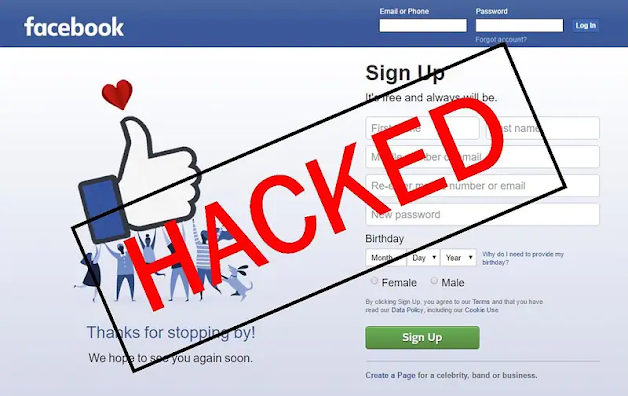With the increasing amount of personal information shared on social media, it's important to take steps to protect yourself from being hacked on Facebook.
There are several techniques that hackers may use to try to gain access to Facebook accounts.
Some common methods include:
Phishing:
Hackers may send fake emails or create fake websites that look like Facebook, asking users to enter their login information.

Malware:
Hackers may use malicious software to infect a user's computer and steal their login information.
Brute force attacks:
Hackers may use automated software to try a large number of password combinations in an attempt to guess the correct one.
Keylogging:
Hackers may use software to record a user's keystrokes, including their login information.
Social engineering:
Hackers may try to trick users into giving them their login information, for example, by pretending to be a Facebook employee or a trusted friend.
By using these and other techniques, hackers may be able to gain access to Facebook accounts and steal personal information. It is important to be cautious and take steps to protect yourself from these types of attacks.
Here are a few tips to help you stay safe:
Use a strong, unique password:
Choose a password that is difficult to guess and not used on any other accounts. Avoid using personal information, such as your name or date of birth, in your password.
Enable two-factor authentication:
Two-factor authentication adds an extra layer of security to your account by requiring you to enter a code sent to your phone or email in addition to your password when logging in from a new device.
Be cautious about what you click on:
Hackers often use links in emails, messages, and posts to gain access to your account. Be wary of clicks on links, especially if they seem suspicious or come from an unknown source.
Keep your software up to date:
Make sure to keep your operating system, browser, and other software up to date with the latest security patches. This can help protect against known vulnerabilities that hackers may exploit.
Use a reputable antivirus program:
An antivirus program can help protect your computer from malware and other online threats that could be used to hack your Facebook account.
By following these tips, you can help protect your Facebook account and reduce the risk of being hacked. It's important to stay vigilant and take steps to secure your online accounts to protect your personal information and online privacy.









0 Comments
Your Comment Means A Lot!!